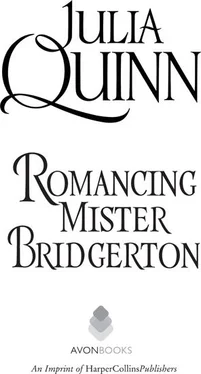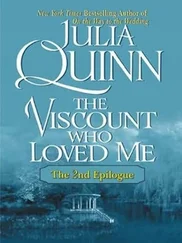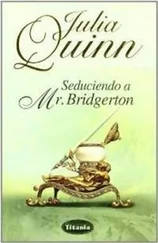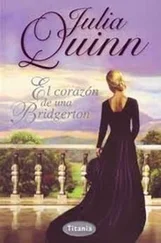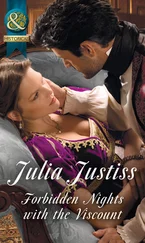On the tenth of April, in the year 1813—precisely two days after her seventeenth birthday—Penelope Featherington made her debut into London society. She hadn’t wanted to do it. She begged her mother to let her wait a year. She was at least two stone heavier than she ought to be, and her face still had an awful tendency to develop spots whenever she was nervous, which meant that she always had spots, since nothing in the world could make her as nervous as a London ball.
She tried to remind herself that beauty was only skin deep, but that didn’t offer any helpful excuses when she was berating herself for never knowing what to say to people. There was nothing more depressing than an ugly girl with no personality. And in that first year on the marriage mart, that was exactly what Penelope was. An ugly girl with no—oh, very well, she had to give herself some credit—with very little personality.
Deep inside, she knew who she was, and that person was smart and kind and often even funny, but somehow her personality always got lost somewhere between her heart and her mouth, and she found herself saying the wrong thing or, more often, nothing at all.
To make matters even less attractive, Penelope’s mother refused to allow Penelope to choose her own clothing, and when she wasn’t in the requisite white that most young ladies wore (and which of course didn’t flatter her complexion one bit), she was forced to wear yellow and red and orange, all of which made her look perfectly wretched. The one time Penelope had suggested green, Mrs. Featherington had planted her hands on her more-than-ample hips and declared that green was too melancholy.
Yellow, Mrs. Featherington declared, was a happy color and a happy girl would snare a husband.
Penelope decided then and there that it was best not to try to understand the workings of her mother’s mind.
So Penelope found herself outfitted in yellow and orange and the occasional red, even though such colors made her look decidedly un happy, and in fact were positively ghastly with her brown eyes and red-tinged hair. There was nothing she could do about it, though, so she decided to grin and bear it, and if she couldn’t manage a grin, at least she wouldn’t cry in public.
Which, she took some pride in noting, she never did.
And if that weren’t enough, 1813 was the year that the mysterious (and fictitious) Lady Whistledown began publishing her thrice-weekly Society Papers . The single-sheet newspaper became an instant sensation. No one knew who Lady Whistledown really was, but everyone seemed to have a theory. For weeks—no, months, really—London could speak of nothing else. The paper had been delivered for free for two weeks—just long enough to addict the ton —and then suddenly there was no delivery, just paperboys charging the outrageous price of five pennies a paper.
But by then, no one could live without the almost-daily dose of gossip, and everyone paid their pennies.
Somewhere some woman (or maybe, some people speculated, some man) was growing very rich indeed.
What set Lady Whistledown’s Society Papers apart from any previous society newssheets was that the author actually listed her subjects’ names in full. There was no hiding behind abbreviations such as Lord P——or Lady B——. If Lady Whistledown wanted to write about someone, she used his full name.
And when Lady Whistledown wanted to write about Penelope Featherington, she did. Penelope’s first appearance in Lady Whistledown’s Society Papers went as follows:
Miss Penelope Featherington’s unfortunate gown left the unfortunate girl looking like nothing more than an overripe citrus fruit .
A rather stinging blow, to be sure, but nothing less than the truth.
Her second appearance in the column was no better.
Not a word was heard from Miss Penelope Featherington, and no wonder! The poor girl appeared to have drowned amidst the ruffles of her dress .
Not, Penelope was afraid, anything that would enhance her popularity.
But the season wasn’t a complete disaster. There were a few people with whom she seemed able to speak. Lady Bridgerton, of all people, took a liking to her, and Penelope found that she could often tell things to the lovely viscountess that she would never dream of saying to her own mother. It was through Lady Bridgerton that she met Eloise Bridgerton, the younger sister of her beloved Colin. Eloise was also just turned seventeen, but her mother had wisely allowed her to delay her debut by a year, even though Eloise possessed the Bridgerton good looks and charm in abundance.
And while Penelope spent her afternoons in the green-and-cream drawing room at Bridgerton House (or, more often, up in Eloise’s bedchamber where the two girls laughed and giggled and discussed everything under the sun with great earnestness), she found herself coming into occasional contact with Colin, who at two-and-twenty had not yet moved out of the family home and into bachelor lodgings.
If Penelope had thought she loved him before, that was nothing compared to what she felt after actually getting to know him. Colin Bridgerton was witty, he was dashing, he had a devil-may-care jokester quality to him that made women swoon, but most of all . . .
Colin Bridgerton was nice.
Nice . Such a silly little word. It should have been banal, but somehow it fit him to perfection. He always had something nice to say to Penelope, and when she finally worked up the courage to say something back (other than the very basic greetings and farewells), he actually listened. Which made it all the easier the next time around.
By the end of the season, Penelope judged that Colin Bridgerton was the only man with whom she’d managed an entire conversation.
This was love. Oh, this was love love love love love love. A silly repetition of words, perhaps, but that was precisely what Penelope doodled on a ridiculously expensive sheet of writing paper, along with the words, “Mrs. Colin Bridgerton” and “Penelope Bridgerton” and “Colin Colin Colin.” (The paper went into the fire the moment Penelope heard footsteps in the hall.)
How wonderful it was to feel love—even the one-sided sort—for a nice person. It made one feel so positively sensible.
Of course, it didn’t hurt that Colin possessed, as did all the Bridgerton men, fabulous good looks. There was that famous Bridgerton chestnut hair, the wide and smiling Bridgerton mouth, the broad shoulders, the six-foot height, and in Colin’s case, the most devastating green eyes ever to grace a human face.
They were the sort of eyes that haunted a girl’s dreams.
And Penelope dreamed and dreamed and dreamed.
April of 1814 found Penelope back in London for a second season, and even though she attracted the same number of suitors as the year before (zero), the season wasn’t, in all honesty, quite so bad. It helped that she’d lost nearly two stone and could now call herself “pleasantly rounded” rather than “a hideous pudge.” She was still nowhere near the slender ideal of womanhood that ruled the day, but at least she’d changed enough to warrant the purchase of a completely new wardrobe.
Unfortunately, her mother once again insisted on yellow, orange, and the occasional splash of red. And this time, Lady Whistledown wrote:
Miss Penelope Featherington (the least inane of the Featherington sisters) wore a gown of lemon yellow that left a sour taste in one’s mouth .
Which at least seemed to imply that Penelope was the most intelligent member of her family, although the compliment was backhanded, indeed.
But Penelope wasn’t the only one singled out by the acerbic gossip columnist. Dark-haired Kate Sheffield was likened to a singed daffodil in her yellow dress, and Kate went on to marry Anthony Bridgerton, Colin’s older brother and a viscount to boot!
Читать дальше
